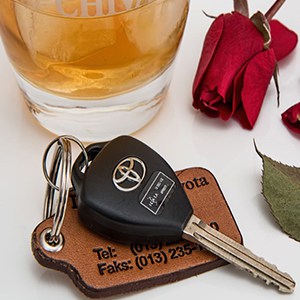What Are The Roadside Breath Tests And Standardized Field Sobriety Tests In A DUI?
If a person refuses to submit to a blood or alcohol breath test in Pennsylvania, then they will automatically be subject to a higher tier of punishment and lose their license for one year. This is a civil penalty that has nothing to do with the criminal case. Currently, there is a lot of litigation about whether or not an individual should be subject to this higher tier of punishment. This litigation has revolved primarily around the Birchfield v. North Dakota case.
Roadside breath tests and sobriety tests are not admissible in court as evidence of intoxication, but they are admissible in court for the purposes of showing whether or not the police had probable cause to conduct the arrest. If a case goes to trial, the sole question will be whether or not the defendant was driving under the influence of alcohol, and the roadside breath test is unreliable for this purpose. However, the breath test that is done at the station using a properly calibrated machine or blood draw is admissible for the purposes of showing intoxication.
What Happens If I Refuse The Evidential Breathalyzer Test At The Station?
If a person refuses the evidential breathalyzer test at the station, then they will lose their driver’s license for one year. Anyone who is in this position should talk to a criminal defense attorney. A refusal of this sort could result in three days’ worth of imprisonment as a mandatory minimum. However, the state of the law is changing, so a consultation with an experienced attorney is necessary in order to adequately assess the potential consequences of refusal in Pennsylvania.
Can I Speak With An Attorney Prior To Consenting To A Breath Or Blood Test?
Generally, a person will not be allowed to speak to an attorney prior to consenting to a breath or blood test.
What Factors Can Enhance Or Aggravate A DUI Charge In Pennsylvania?
Factors that can aggravate a DUI charge in Pennsylvania include a high BAC, injury, the presence of children in the vehicle, whether or not the driver was properly licensed to drive, whether or not an aggravated assault by DUI was committed, and whether or not the driver was driving recklessly.
Do Most DUI Cases Go To Trial Or Plead Out?
Some clients fight their DUI charges because they simply cannot give up their driver’s license. They will do whatever they can to maintain their livelihood. In some cases, taking a plea deal might be the best option. DUI laws are currently in flux, and the police have been sloppy and incomplete in many DUI cases in Philadelphia. Sometimes the police don’t do what they’re supposed to do under the law. For example, they might conduct a stop without reasonable suspicion or probable cause. There are so many issues that can come up in a DUI case. For most clients, the best option is to schedule a free consultation with an attorney.
For more information on Breath Tests & Sobriety Tests In A DUI Case, an initial consultation is your next best step. Get the information and legal answers you are seeking by calling (267) 225-3317 today.

Call Now For A Personalized Case Evaluation
(267) 225-3317
Free Strategy Session Available for Criminal and Civil Cases


